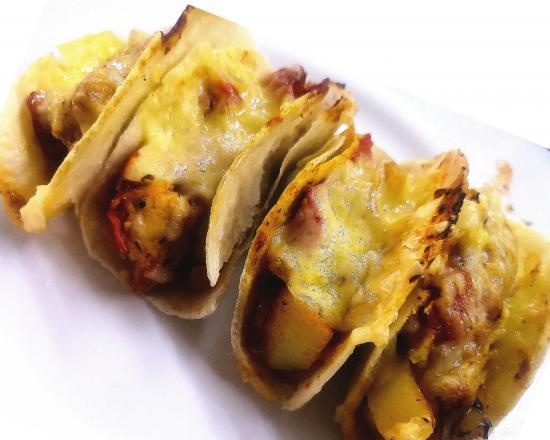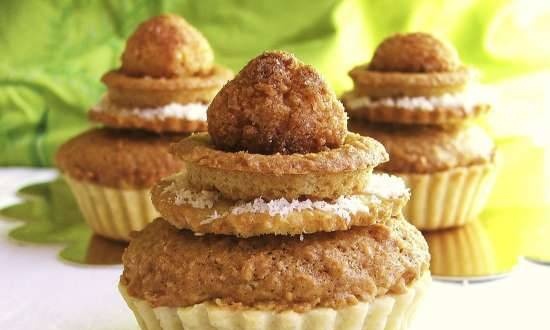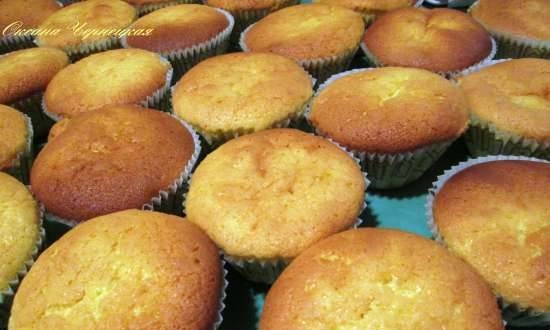Note
Fenugreek sprouts (shambhala, fenugrek, hilbe) (From the book by N. Kairos \ "Sprouts are living food \")
\ "If people only knew what was in the khilba, they would sell it at the price of gold ...
One hundred diseases and hilba healing them ...
From ancient Arabic sayings, II-III century A.D. e.
Fenugreek, fenugreek, hilbe, shambhala ... ironically, all these names belong to one humble-looking plant.
From ancient times to the present day, fenugreek (hilbe) has been cultivated practically throughout Europe. Its extensive plantations are located in India, China, Ethiopia, Tunisia, Morocco, Argentina. In the East, the seeds of this wonderful plant are an indispensable attribute of bread, in the Arab countries bearing the name \ "hulba \", and in Ethiopia - \ "abish \". And in abundant Greece, raw fenugreek seeds are traditionally eaten with honey. In Russia, alas, this plant is undeservedly forgotten. But the very name \ "fenugreek \" has the root of the Old Slavonic word \ "to pasture \" - a place where cattle graze, which has been replaced by the name of pasture.
Fenugreek has been known as a medicinal plant since ancient times. Hippocrates repeatedly mentioned the Fenugreek (literally "Greek hay"). Fenugreek was also used as a remedy in Russia.
Fenugreek sprouts have a targeted healing and prophylactic effect. Thanks to the richest set of trace elements and vitamins, they are indispensable for the correction of conditions associated with a lack of nutrients in the body. This is primarily anemia, depletion of the body caused by various factors, neurasthenia.
The high content of vitamin A, combined with choline, makes the product a source of energy. Modern scientists have proven the ability of fenugreek (hilbe) to lower cholesterol and triglyceride levels, and protect against heart disease. The unique chemical composition is an effective remedy for the fight against giardiasis. Eating even a small amount of seedlings helps to improve the intestinal microflora, inhibits the growth of pathogenic microorganisms.
Fenugreek seedlings properties:
• liquefies and softens the thickened masses of mucus in the bronchi and lungs;
• due to the high content of steroidal saponins, it has a pronounced anti-sclerotic effect;
• promotes the removal of toxic products through the lymphatic system;
• is a natural therapy for estrogen deficiency;
• controls blood sugar levels;
• has a pronounced restorative effect;
• suppresses pathogenic intestinal microflora;
• is a treatment for giardiasis;
• chewing fenugreek seedlings improves the condition of the gums, prevents the appearance of periodontal disease and periodontitis.
How to use fenugreek sprouts
As a general tonic, it is recommended to use fenugreek sprouts 1 teaspoon per day during meals or 5-10 minutes before starting. The minimum effective course is 14 days, the optimal one is 1 month.
Fenugreek sprouts have a specific flavor that helps reveal the flavor of other foods.
They are included in breads, smoothies and green cocktails, giving them a unique slightly spicy taste. \ "
Sunflower seed sprouts (from the book by N. Kairos \ "Sprouts - live food \")
\ "Sunflower, flower of the sun ... This plant was worshiped in many countries, seeing in it the embodiment of the power of the sun, given to mother earth.
Most people know about the benefits of sunflower oil as a supplier of vitamin E thanks to advertising. And the husking of sunflower seeds is so widespread in Russia, Ukraine and Belarus that lately many supermarkets have been selling beautiful bags of fried seeds. Alas, fried seeds are a dead product with only a few nutrients preserved. It's good if they haven't been chemically treated ...
Few people know that the beneficial properties of roots, leaves, inflorescences and, of course, sunflower seeds are comparable to those of ginseng. Therefore, herbalists often call it Russian ginseng. Let's try to figure out why.
100g of sunflower seeds contain 311 mg of magnesium - 6 times more than, for example, rye bread. Sunflower seed proteins have almost all the essential amino acids. In addition, sprouts help accelerate the healing of soft tissue injuries, promote the integrity of damaged bones, and restore strength after infectious diseases. Being a source of prostaglandin, they act as a persistent protector of the mucous membrane of the stomach and intestines.
Sunflower seedlings are extremely rich in mineral composition. Calcium, magnesium, zinc, potassium are present in large quantities, and the iron content exceeds the iron content in raisins.
Sunflower seedling properties:
• are an effective multivitamin, optimally suitable for baby food;
• increase appetite, are considered a general tonic;
• normalize the state of the gastrointestinal tract;
• improve the ability to concentrate, increase efficiency.
Due to its high taste, sunflower sprouts can be used as an additive for the preparation of various kinds of salads, pastes, pates, and raw fermented cheese.
Sunflower sprouts: small sun of great strength
The vitality of the sun flower is truly amazing. It can grow on bottomless soils, overcoming environmental resistance. This summer we had a pretty funny story. Shortly before leaving the dacha last fall, I dried sunflower inflorescences along with seeds in the bathhouse, and in a hurry I forgot a small metal dish right on the bench. In the spring, they never remembered the sunflower, and in June the dish was put on a bench in the yard. And so it stood, attracting no attention.
Imagine our surprise when, after a heavy rain, the seeds woke up right on the platter and turned into wonderful healthy shoots. Beauty! I dug a plant in the vacant garden bed, and, densely planted, they began to grow together.The language of nature dictated to young sunflowers a rhythm according to which they, \ "babies \", should tie inflorescences.
The sunflower seed is so small that it is difficult to taste it. But a tiny plant that has managed to develop both a root and a stem with leaves and even set a bud is a completely full-fledged product. Throughout July, in the mornings, I went to the garden, pulled out several plants with roots, washed them thoroughly and placed them in a blender. In a few seconds, a delicious and healthy green cocktail was obtained. You can strain the finished mass through a fine sieve. You will get a drink with a slight taste of pine needles. The solid residue (cake) can be used to prepare other dishes.
The healing properties of sunflower have long been known in folk medicine. So, a decoction from the roots of a ripe plant is used to cleanse the kidneys and gallbladder from stones, yellow leaves of the flower are used in the treatment of chronic migraines, and the stem helps to cope with the loss of strength, increase hemoglobin and overcome anemia. Sunflower, which accumulates the energy of the sun, is a real storehouse of microelements and vitamins. In a short time, the flower of the sun makes the alchemical path of reproduction of the seed, revives itself.
It is a little surprising that sunflowers are not frequent guests in village gardens. A couple of years ago, however, a fashion appeared for the cultivation of decorative varieties, but somehow it did not take root. Old-timers say that sunflower strongly depletes the earth, \ "pulling \" all useful elements out of it. Perhaps this is the reason for the oblivion of this wonderful plant.
My observations show that sunflowers thrive on poor lands too. So, in the spring, on a pile of sand, I found several sprouts, some transplanted closer to home to please the eye. But one little hero remained on the pile of sand until October, a staunch tin soldier with touching yellow leaves ... Among the crimson maple leaves, he delighted the eye until the very frosts, setting an example of courage and resilience.
Difficulties temper a person, shape character. A plant forced to survive in adverse natural conditions \ "hardens \" immunity. On the contrary, the introduction of fertilizers, overly careful weeding of weeds oppresses him. Plant immunity enters into a resonant structure with human immunity, conveys life-giving information.
Those who have grown sunflowers on their site know how strong their roots are. By the fall, the stems become stiff, and sometimes it becomes very difficult to pull them out of the ground. The roots form a dense web, resembling the capillary network of human vessels. The area of contact of the root with the soil is extremely large. So the sunflower absorbs the information of the earth, writes down the code that the seeds will transmit from plant to plant. Truly the alchemy of transformation!
A kilogram of unroasted and unpeeled seeds on the market costs about the same as a cup of coffee in an inexpensive St. Petersburg cafe. meanwhile, from this kilogram, you can get almost a month's supply of excellent seedlings, suitable both for consumption in their pure form and for making all kinds of smoothies and cocktails based on them. Think about it?
It's easy to get sunflower seed sprouts - just soak them for 6-8 hours, drain the water and leave to germinate. Sunflower sprouts can be a great base for a nutritious breakfast. They give a special delicate taste to homemade bread. \ "













